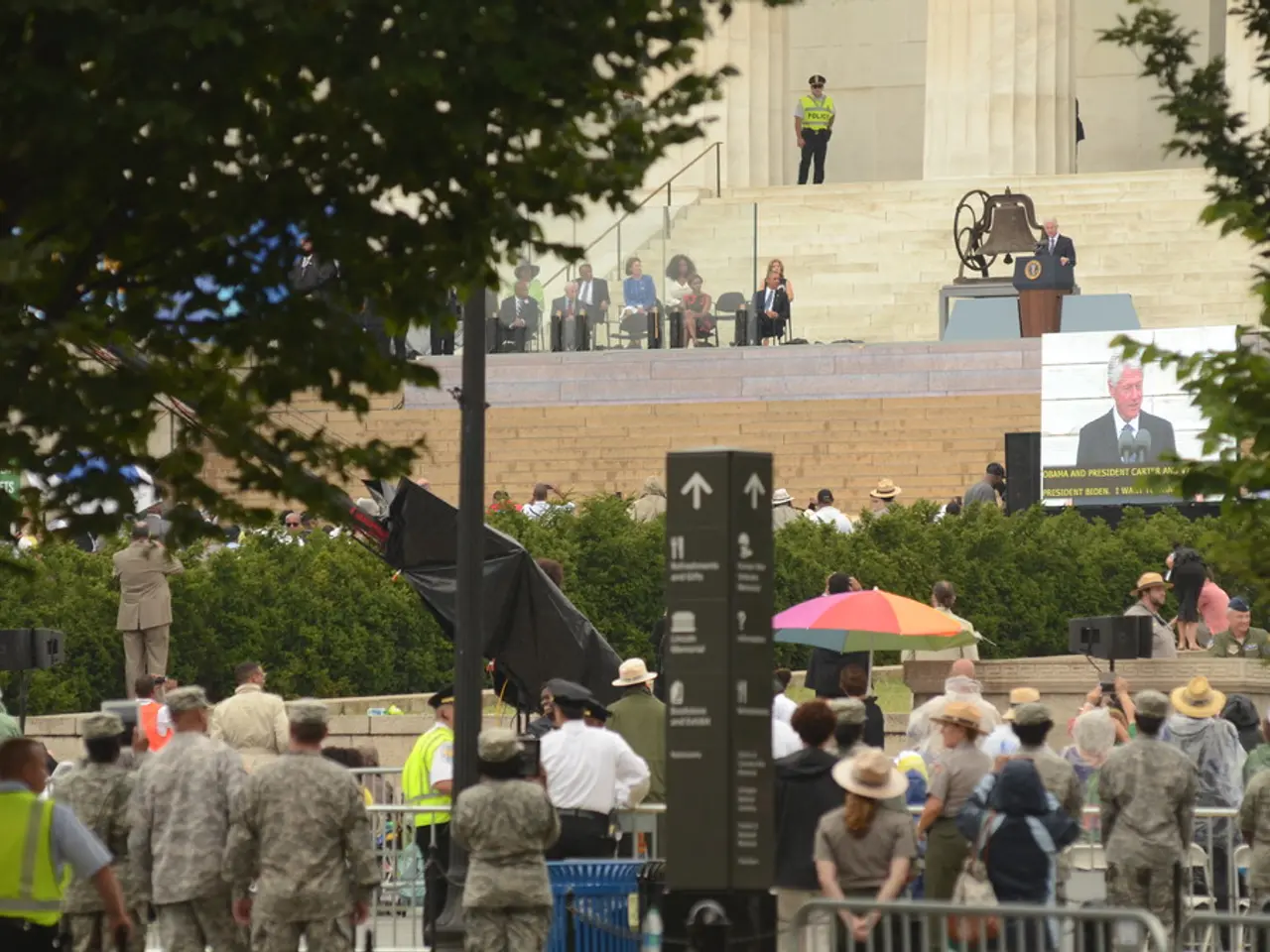Iran agrees to enforce nuclear limitations if international sanctions are lifted, as stated by Araghchi.
In recent developments, Iran has suspended its cooperation with the United Nations' International Atomic Energy Agency (IAEA), marking a significant setback in efforts to resolve concerns about its nuclear program. This decision comes amidst ongoing crippling western sanctions on Iran's oil industry, primarily imposed by the United States following its withdrawal from a 2015 deal with world powers.
The oil industry forms a significant part of Iran's economy, and despite the sanctions, China remains the dominant buyer of Iran's oil. However, the conflict over the nuclear program has disrupted talks between Tehran and Washington aimed at reaching a new deal.
Ayatollah Ali Khamenei, Iran's supreme leader, has expressed concern over the current state of Iran's oil production, which he considers to be low. He has also emphasised the need for multiple and diverse customers to ensure the dynamism of oil exports.
Iran's Foreign Minister, Abbas Araghchi, has been at the forefront of negotiations, writing an opinion piece stating that Iran is willing to accept limits on its nuclear program, including restrictions to uranium enrichment, if international sanctions are lifted. He has also expressed a readiness to forge a realistic and lasting bargain that entails ironclad oversight and curbs on enrichment in exchange for the termination of sanctions.
However, relations between Iran and Europe have deteriorated over the nuclear program, with the European Union (EU) foreign policy chief, Kaja Kallas, recently meeting with Mr Araghchi to seek a "negotiated solution" to the standoff. Despite these efforts, last month, Britain, France, and Germany set off the so-called "snapback" mechanism under the 2015 deal to reimpose UN sanctions on Iran.
Under the "snapback" mechanism, the E3 countries have given Iran a month to negotiate before the sanctions are reimposed. Mr Araghchi has responded by accusing Europe of enabling the excesses of Washington and has referred to the strategy of providing a seat at the table on other issues as a "reckless course of action" and a "grave miscalculation that is bound to backfire".
The nuclear program has been a contentious issue for years, with Western countries accusing Iran of seeking to acquire nuclear weapons, while Iran denies this and insists its nuclear program is civilian. This dispute was further exacerbated this year when the US and Israel struck key Iranian nuclear plants during a 12-day war with Israel.
Despite these challenges, Mr Araghchi has maintained that there is still time and a need for an honest conversation to avoid the reimposition of UN sanctions. As the situation continues to evolve, it remains to be seen whether diplomatic efforts will prevail or if tensions will escalate further.
Read also:
- Tobacco industry's suggested changes on a legislative modification are disregarded by health journalists
- Trump's Policies: Tariffs, AI, Surveillance, and Possible Martial Law
- Uncovering Political Ad Transparency: A Guide to Investigating opponent's Political Advertisements in the Digital Realm
- Elon Musk praises JD Vance's debate performance against Tim Walz








